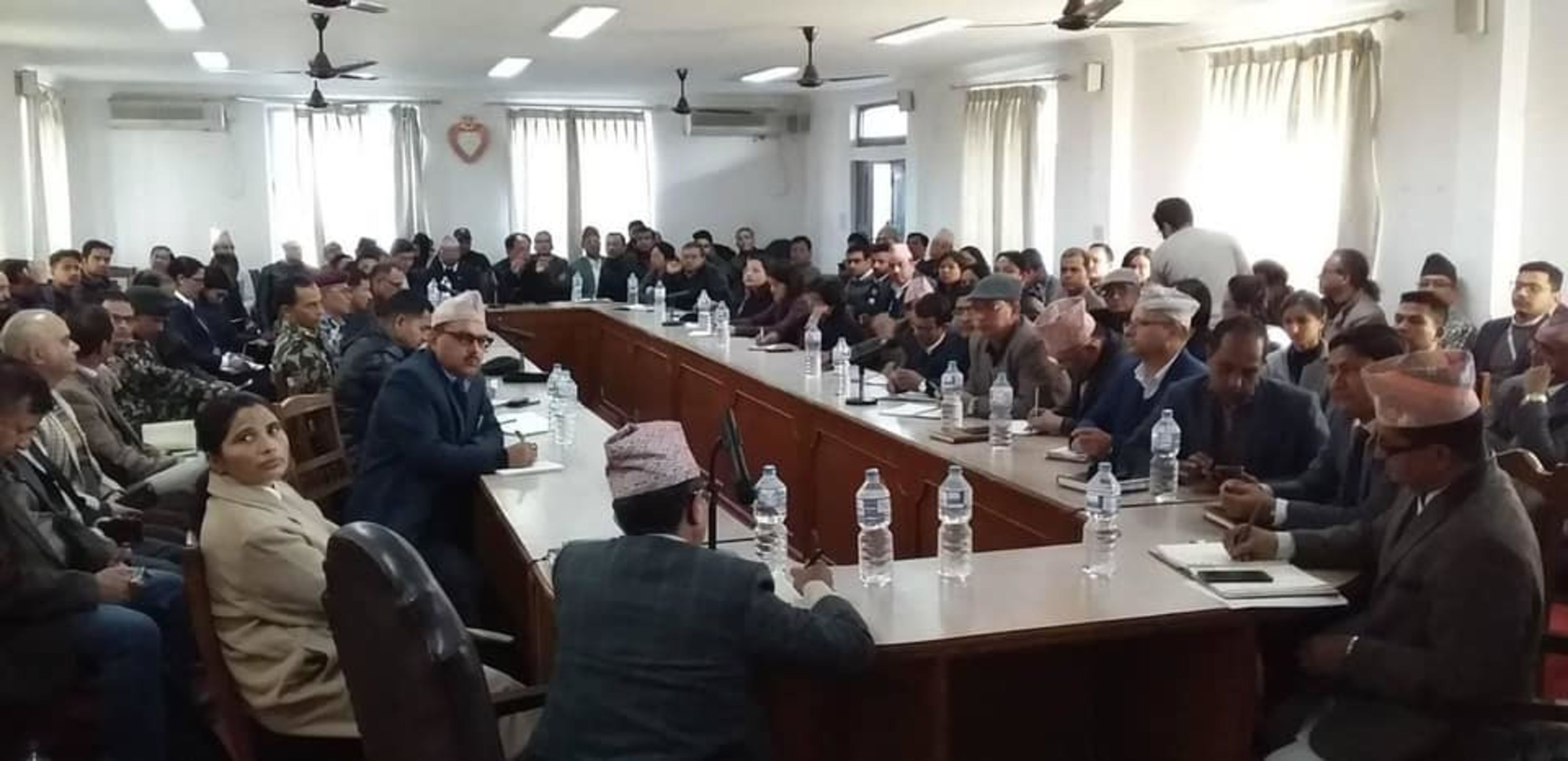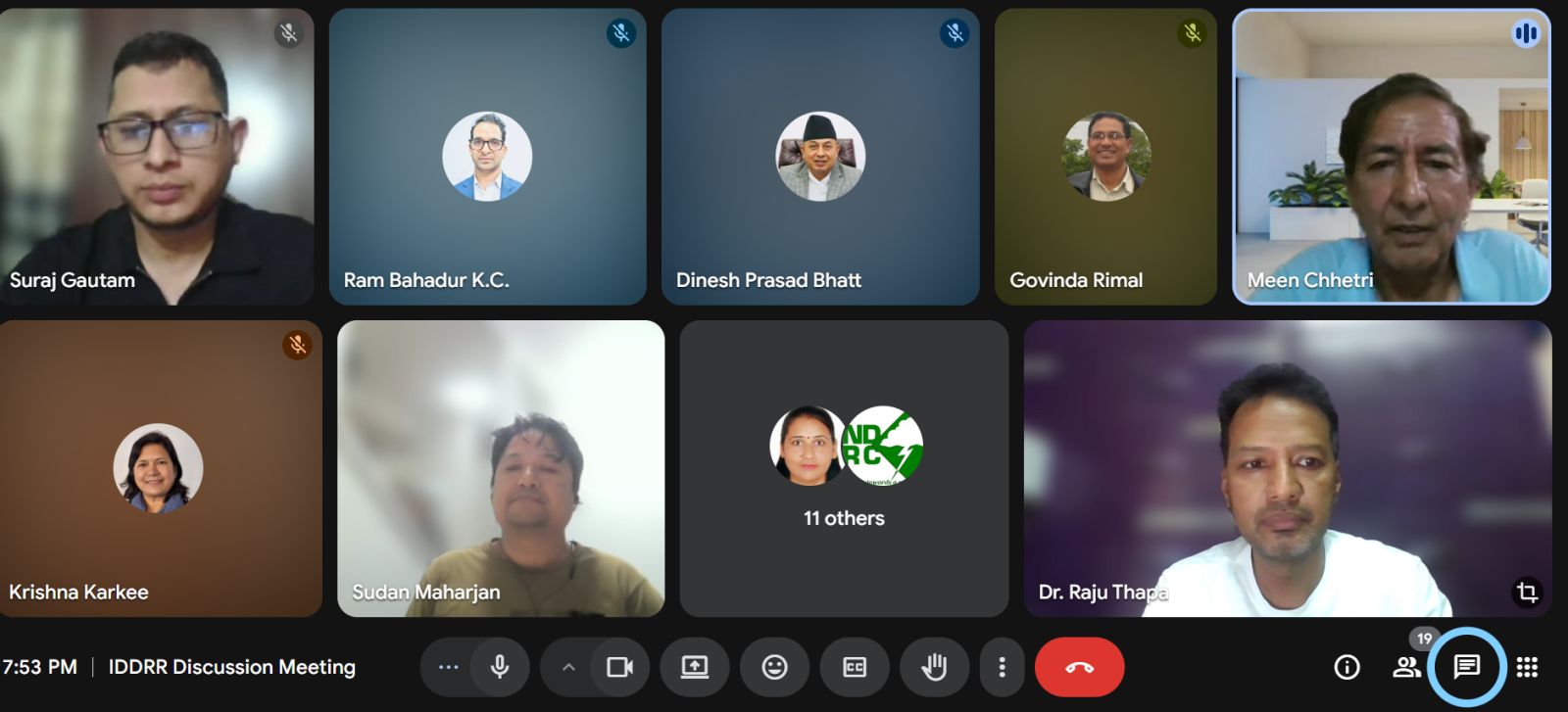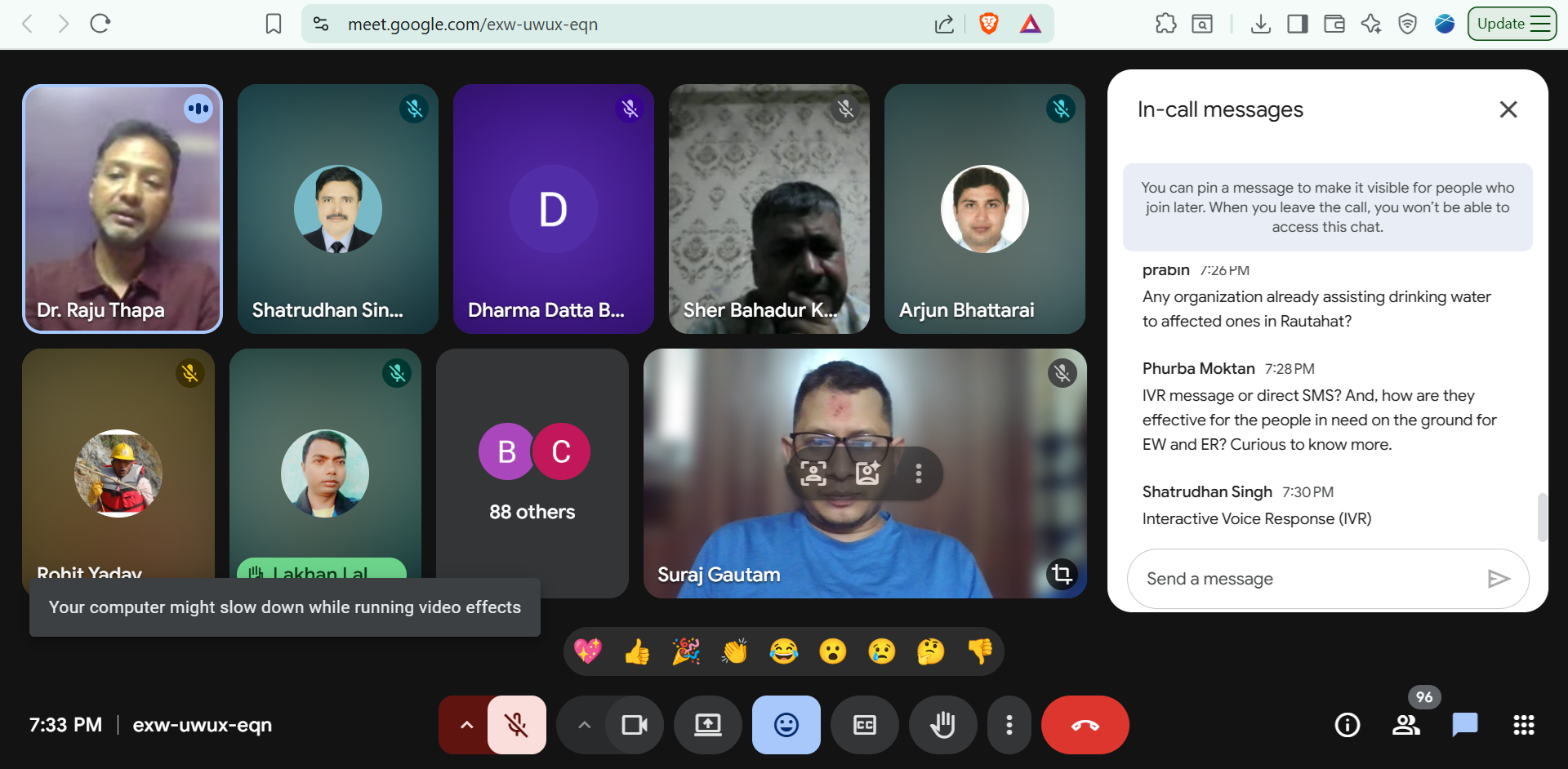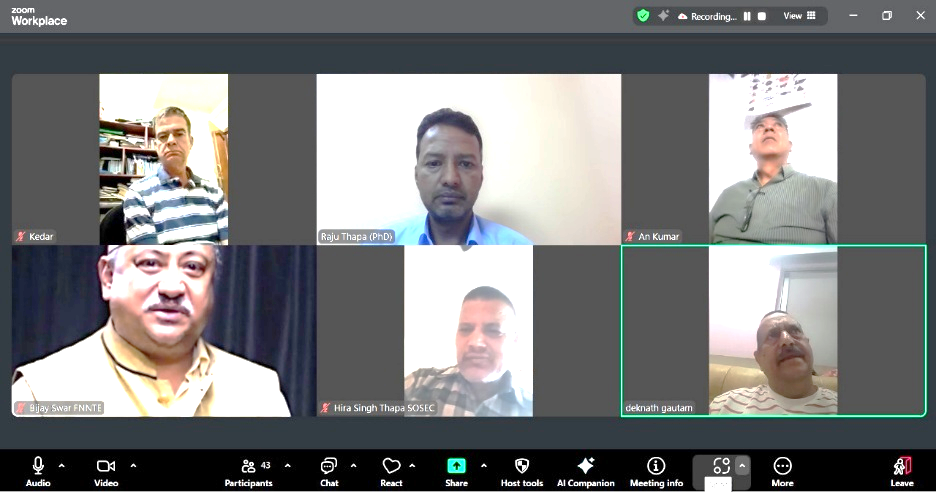National Platform for Disaster Risk Reduction Holds a Meeting (2019)

National Platform for Disaster Risk Reduction Holds a Meeting (2019)
Kathmandu, Nepal - The National Platform for Disaster Risk Reduction (NPDRR) convened a national-level meeting on December 26, 2019, to discuss key agendas related to the platform's progress, plans, Standard Operating Procedures (SOP) NPDRR, and enhanced coordination with stakeholders. Led by the Ministry of Home Affairs (MoHA), NPDRR serves as a collaborative platform for organizations engaged in Disaster Risk Reduction and Management (DRRM) to foster a common understanding of disaster-related issues, facilitate policy advocacy, coordinate efforts, and provide advice on DRR&M priorities. The NPDRR was established in 2009 as per the guidelines of the United Nations Office for Disaster Risk Reduction, with the Secretariat role entrusted to DPNet-Nepal on October 24, 2013.
The meeting, coordinated by DPNet-Nepal and organized by MoHA, saw the participation of 105 representatives from various sectors, including government agencies, security sectors, NGOs, UN agencies, donor agencies, private sectors, media, and academia.
The event commenced with Mr. Prem Kumar Rai, Secretary of MoHA, presiding over the meeting. Joining him were Mr. Anil Pokhrel, Executive Chief of the National Disaster Risk Reduction and Management Authority (NDRRMA), Ms. Indu Ghimire, Joint Secretary and Chief of the Disaster and Conflict Management Division at MoHA, and Mr. Surya Bahadur Thapa, Chairperson of DPNet-Nepal. Following the chairing session, presentations were delivered on various topics.
Mr. Raju Thapa, General Secretary of DPNet-Nepal, presented the "Annual Activities and action plan of the Secretariat of NPDRR." His presentation outlined the historical context of NPDRR, highlighted the major activities undertaken by the secretariat in 2019, provided an introduction to the online resource center, and proposed plans for 2020.
Mr. Shambhu Regmi, Under Secretary at MoHA, shared a presentation on the draft NPDRR SOP Guideline. He discussed the significant provisions of the guideline section by section.
During the meeting, participants raised several concerns primarily related to the provisions outlined in the NPDRR guideline. They emphasized the need to address the financial support, governance, and institutionalization of NPDRR. They also stressed the importance of coherence between the activities of the NPDRR Secretariat and the NPDRR SOP Guideline. Additionally, discussions centered around linking NPDRR with regional networks, involving academic sectors in monitoring and evaluation efforts, localizing NPDRR, coordinating with ministries, establishing a virtual presence through an online resource center, and explicitly addressing Gender Equality and Social Inclusion (GESI) concerns in NPDRR and NDRRMA.
In her remarks, Ms. Indu Ghimire acknowledged the feedback received during the meeting and assured participants that it would be incorporated into the guideline based on suitability, needs, and priorities. She highlighted the importance of maintaining the platform's role and the need for a secretariat to facilitate coordination among stakeholders. Ms. Ghimire emphasized that the localization of NPDRR is a sensitive issue and, instead of imposing directives, the guidelines would be developed. She concluded by affirming NPDRR as a loose forum and encouraged participants to provide their feedback on defining roles and responsibilities.
Mr. Surya Bahadur Thapa, Chairperson of DPNet-Nepal, expressed the platform's commitment to working collaboratively with stakeholders. He emphasized that NPDRR is not an implementing body but serves as a place for coordination, networking, and the dissemination of good practices, knowledge management, and information sharing. He acknowledged Nepal's successful practice of presenting a united voice in international forums among government and non-government agencies. Mr. Thapa also congratulated the newly appointed CEO of NDRRMA and emphasized the importance of prioritizing three themes: understanding risk, GESI integration, and education.
Mr. Anil Pokhrel, CEO of NDRRMA, underscored the significance of collective efforts, shared practices, and learning in the global forum. He urged participants to prioritize these themes and emphasized the need for a virtual presence to expand the reach of DRR&M initiatives. Mr. Pokhrel called for informed dialogues and discourse to invigorate the field and encouraged participants to review the draft NPDRR SOP Guideline and provide feedback. He expressed his commitment to establishing a regional model with the support of all stakeholders.
Concluding the meeting, Mr. Prem Kumar Rai, Secretary of Home Affairs, assured participants that their suggestions would be incorporated into the guideline after receiving feedback. He highlighted the upcoming provision of a separate building for NDRRMA, including a space for the platform accessible to the public. Secretary Rai emphasized the need to prioritize disaster risk prevention and mitigation and develop funding mechanisms while involving academic sectors in research and studies.
Secretary Rai declared that the CEO would henceforth chair NPDRR meetings and called for integrated efforts and avoidance of duplicative activities. He suggested leveraging NPDRR as a knowledge-sharing and coordination forum and expressed gratitude to all participants for their presence and valuable input. Secretary Rai pledged full support from MoHA and encouraged collaborative support from all levels of government and DPNet-Nepal to strengthen NPDRR's effectiveness.











